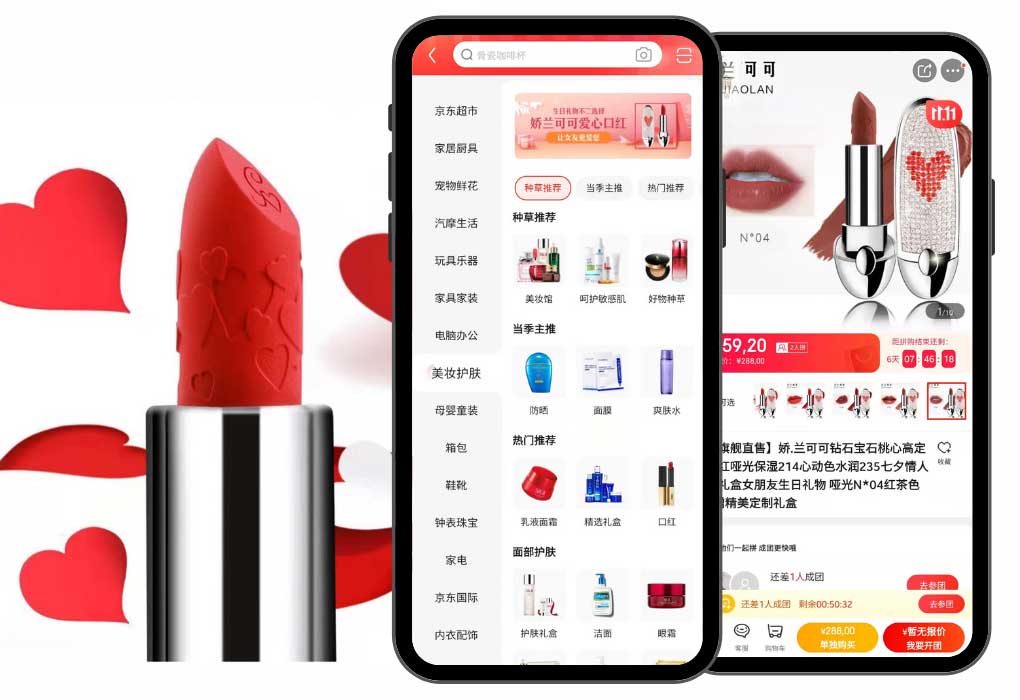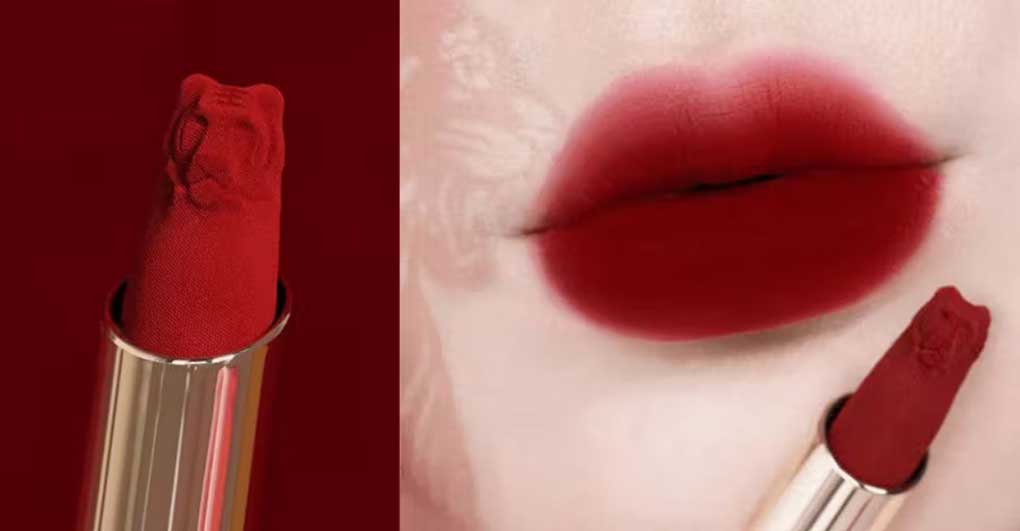Here is 10 reasons in 2024
- Market Share: French cosmetics account for approximately 35% of the revenue for many French beauty companies operating in China.
- Consumer Preference: Among international cosmetic brands, French brands are often the preferred choice for Chinese consumers, especially in the luxury segment.
- Growth Rate: The Chinese market for French cosmetics has been growing steadily, with an increasing number of French beauty brands entering the Chinese market each year.
- E-commerce Sales: French cosmetics brands have seen a significant increase in sales through Chinese e-commerce platforms, with some brands experiencing double-digit growth annually.
- Skincare Dominance: In China, French skincare products, particularly anti-aging and skin-brightening products, are highly sought after and lead sales among French cosmetics.
- Men’s Grooming Market: French cosmetic brands are increasingly tapping into China’s growing men’s grooming market, offering a range of skincare and grooming products.
- Luxury Segment: French luxury cosmetic brands hold a substantial share of the high-end beauty market in China, appealing to the affluent and middle-class consumers.
- Consumer Trust: Due to their long history and reputation for quality, French cosmetics are trusted by Chinese consumers, who often perceive them as safer and more effective than local products.
- Regulatory Adaptation: French cosmetic companies have adapted to China’s regulatory requirements, such as mandatory animal testing for imported cosmetics, to maintain their market presence.
- Cultural Collaborations: French brands often engage in cultural collaborations and marketing initiatives in China, aligning their products with Chinese festivals, celebrities, and cultural trends to increase appeal and relevance to local consumers.
As the Chinese cosmetics market continues to grow, French brands are reaping the benefits. Chinese consumers are falling in love with French brands like Lancôme, L’Oréal, and Chanel. In this blog post, we’ll explore the reasons behind this surge and discuss how brands can capitalize on it.
“14% growth after the 5% decline in 2020, and exports of 12 billion euros close to the best year at 15 billion. We did better than expected.”
Marc-Antoine Jamet, le président du pôle de compétitivité Cosmetic Valley (on Cosmetics & Fragrance Export to China in 2021)
French Exportation of Cosmestics Up by 34% in 2023-2024!
Despite the growth of international Competition from Taiwan, Italy, Chinese local brands, and so on, which was France’s Cosmetics Industry’s main Challenge, the success was there! It was exports that sustained this momentum. As a matter of fact, their growth was twice as fast as domestic sales in 2021. Largely thanks to China, the first economy to take off again after the pandemic. “Orders to French beauty brands have jumped 54% over the past twelve months after growing 21% in 2020,” rejoices the president of the cosmetics competitiveness pole, also secretary-general of the LVMH group. Last year, China became the leading buyer of mascara and skincare products from France.
Read more
What are the reasons behind French Cosmetics growth in China in 2024
There are a few reasons that French cosmetics are so popular in China.
- First, the quality of French cosmetics is renowned around the world, and Chinese consumers place a great emphasis on quality.
- Second, the elegant and understated aesthetic of French cosmetics brands is very popular in China.
- Third: Segment Growth such as High end and Lipsticks
- And finally, French cosmetics brands have been very successful in building a strong emotional connection with their customers, which Chinese consumers appreciate.
Market Premiumization: The Loreal Case Study
China is currently experiencing a growing demand for premium quality and high-end branded products due to urbanization, increasing disposable income, and the influence of social media. There are a few reasons why luxury cosmetics are trendy in China. For one, the Chinese are increasingly becoming wealthier and more affluent, and they’re looking to luxury brands to express their status. Additionally, there’s a growing demand for Western-style beauty products in China, as Chinese consumers become more sophisticated and aware of global trends. Finally, many luxury cosmetics brands have been successful in marketing their products as symbols of aspiration and luxury, which resonates with the Chinese consumer mindset.
L’Oreal, the beauty company that has brands like Lancome and Armani saw sales of luxury goods rise 20% thanks to e-commerce channels opened during this pandemic. In mainland China, the group has experienced double-digit growth in the third-quarter notably thanks to haircare and skincare products. L’Oreal Chief Executive Nicolas Hieronimus said that the restrictions had mostly impacted in-store sales and China’s e-commerce business continues to experience steady growth.
Make-up segment growth: French Lipsticks are Trendy in China
China, the largest importer of lipsticks from France, ramped up purchases by 53% to 1.3K tonnes or 76% to $267M in value terms over the period under review.
Global Trademag
Globally the export of french lipstick experienced an 11% years on years growth, and most of it can be attributed to China where the sales of french lipsticks increased by 53%!
l’Oreal Campaign for Chinese New years 2022, introducing a new lipstick:
Playing on the concept of Guochao, L’oreail introduced a tiger-shaped lipstick during this 2022 Lunar New year.
Guochao is a term that refers to the special packaging and marketing of cosmetics products in China. It’s considered an important factor in the success of cosmetics brands in China, as shoppers are often drawn to products that are attractively packaged and well-promoted. Guochao involves a lot more than just pretty packaging though. It also includes unique product names, creative advertising campaigns, and a careful selection of retail locations. By using these strategies, Chinese cosmetics brands have been able to establish a strong presence in the market and compete with foreign brands.
Sell French Cosmetics Brands in China: How to?

- Why French cosmetics brands should sell on Tmall? French cosmetics brands should sell on Tmall because Alibaba’s e-commerce platform offers Chinese consumers the opportunity to purchase authentic products from some of the world’s most renowned beauty brands. Tmall is China’s largest and most popular online shopping destination, with a consumer base that is highly engaged and loyal to global brands. With Tmall Global, French cosmetics brands can easily reach Chinese consumers and build a trusted relationship with this important market.
- If Tmall is not your Jam, Sell on JDcom: French cosmetics brands should consider selling on JD is because of its strong logistics network and the rise of the segment on the app in the last few years. JD is committed to offering the best possible shopping experience to its customers which in returns won them their trust.
- Open a store on the little red book and reach out to high-end cosmetics lovers: Xiaohongshu is a cosmetics app that has 80% of its users being young Chinese girls. This means that it benefits from strong word-of mouth. Japanese brands must first conquer KOLs if they are to quickly attract Chinese consumers. The Little Red Book’s Red Store is the perfect place for French cosmetics brands to sell their products in China. The store offers an exclusive and convenient shopping experience, and it has a loyal customer base. Plus, the store’s website receives a lot of traffic, so it would be a great opportunity for brands to reach more consumers online.
All these Chinese eCommerce platforms have a cross-border option if you are not ready to sregister your brand in China yet.


